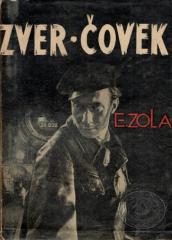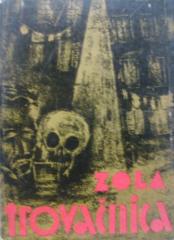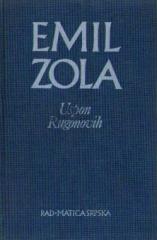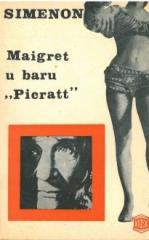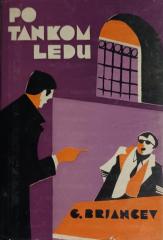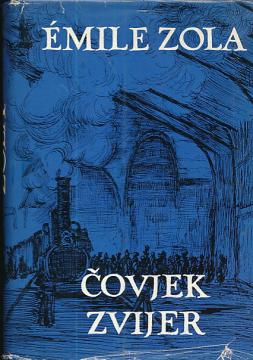
Čovjek zvijer
The novel explores the destructive forces of inheritance, passion, and violence in modern industrial society. The action takes place largely on the railroad, a symbol of speed, destiny, and inevitable doom. “Beast Man” is the first description of crime in
The main character, Jacques Lantier, a railway engineer, has a hereditary tendency towards violence. He is tormented by an uncontrollable urge to kill women who attract him sexually. Although he tries desperately to control his urges, his struggle with himself increasingly tears him apart.
At the heart of the plot is a brutal crime: Roubaud, a high-ranking railway official, together with his wife Séverine, murder the wealthy and corrupt President Grandmorin, their benefactor, after discovering Séverine's affair with him. Jacques, a chance witness, becomes involved in their lives, developing a relationship with Séverine that leads him towards disaster.
Attempts at love and redemption end tragically – Séverine persuades Jacques to kill her husband, but in a moment of weakness, Jacques kills Séverine himself, overcome by his inner demons. The novel culminates in a scene of trains racing towards death, carrying soldiers to war – a powerful image of human powerlessness in the face of instincts and destructive forces.
In "The Beast Man," Zola explores themes of hereditary evil, sexual obsession, and the mechanisms of social collapse, using a naturalistic style to portray the dark side of human nature.
One copy is available
- Traces of patina
- Slight damage to the cover
- A message of a personal nature
- The cover is missing
